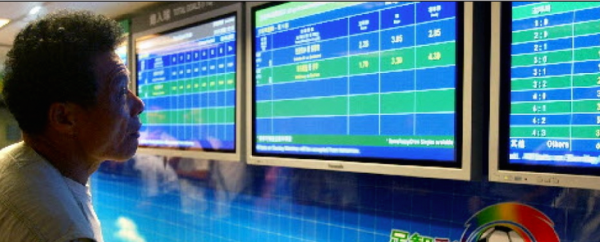East Asian Betting Syndicates Engage in Illegal Means for World Cup Betting
When a sports betting on a global scale pertains to something as big as the World Cup, it is bound to attract on onslaught of illegal gambling activity. This tournament has been classified as the biggest betting event in the world. Some of the figures included in this report include the $645 million in bets that where handled by an illegal Asian betting syndicate for the 2014 World Cup in Brazil. They were eventually busted by police in Macau and it was discovered that this handle was taken in during the early stages of the tournament. The early estimates for illegal betting on the the 2018 World Cup in Russia are even higher given the closer proximity in time zones with Asia. As reported by PlaySlots4RealMoney.com, Malaysian betting syndicates have been buying up bank accounts from private citizens over the past few weeks in an effort to handle and launder the anticipated proceeds from 2018 World Cup betting.
According to an inside source, since large money transactions trigger alerts in banks and other financial institutions, the betting syndicates will utilize anywhere from 700 to 1000 bank accounts to spread the cash. Account holders received around $250 for their bank account. To help combat this practice, Malaysian authorities are doubling up the reward for any information that leads to the arrest of syndicate members. Another facet of the illegal World Cup betting market is the use of cryptocurrencies to place illegal bets. Macau has instituted a crackdown on people using a WeChat app to bet on soccer. Bangkok has taken the same measures through the WhatsApp and it has resulted in 763 arrests in 681 cases of illegal betting on soccer since May. www.PlaySlots4RealMoney.com goes on to add that Bangkok’s deputy police commissioner Paul Lakboon confirmed that his department is monitoring over 300 illegal betting websites in an interview with Channel News Asia. He also added that shutting down the sites presented a challenge since their servers are located outside of Thailand.
In a direct quote by Martin Purbrick, who is the director of security and integrity at the Hong Kong Jockey Club, he has stated, “There is a need to develop and execute a sustainable enforcement strategy for a lasting impact against illegal betting and related transnational organized crime.” The Jockey Club has a legal monopoly on sports betting in Hong Kong, but Purbrick has estimated that the company is losing close to $70 billion annually in revenue due to black market gambling activity.















